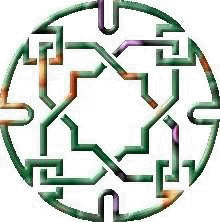

|
|

Philosophers of the Arabs

Salama Mousa (1887 – 1958), a reformer and one of the leading
figures of the modern Arabic renaissance.
And the leader of the Egyptian communism.
His Life
Salama Mousa
was born in a village near Al-Zaqazique, a small city in the Nile delta,
north of
Travel to
On 1906 he traveled to
Return to
Salama Mousa
returned
to
On 1912 he issued the first book in Arabic on
communism, and on 1914, issued with Shibly Shmayel a weekly news paper
titled 'the future' but was shut down after sixteen issues. He also
participated with the historian 'Abdullah Annan' in founding the
Egyptian socialist party on 1921, but afterwards he resigned refusing to
be subjected to any formal rules. As a consequence, he left the
political life and concentrated on journalism and thoughtful writing. On
1923 he headed the famous cultural and thoughtful magazine 'Alhelal'
(the Crescent) for six years.
On 1930
Salama Mousa
founded
the Egyptian consortium for the scientific culture, and issued a new
magazine with the title 'the new magazine'. He meant through these
institutions to propagate his pro-scientific ideas, but the government
closed the consortium. He then founded a society called 'the Egyptian
for the Egyptians', and called for a boycott of the English products as
a means for resisting the English occupation following the well known
Mohandas Gandhi, in
His Thought
Mousa's thought is centered around three main orientations:
rationality and modernism, socialism as a means for social justice, and
the search for the basics of the Egyptian character in its Pharaoh's
roots.
In addition he was an advocate of democracy and secularism and
liberation of women.
In short his thought was essentially western in its renaissance and
enlightenment mood.
Therefore, he believed that we should adopt
completely the European philosophy and be part of it. He also viewed
that emancipation of enslavement is jeopardized by getting rid of
enslavement to God.
Hence, he considered religion as a pragmatic
thought and subject to human advancement, and we can replace prophets
with philosophers, and religious values with rational values. He
preached, then, the natural religion in which scientific thoughts
replace religious thought.
His socialism thought was based on rejecting the
revolution, in accordance with the English communism at that time. And
he believed in the gradual change of the society toward a democratic
society and criticized the
Bolsheviks
revolution. With reference to his third orientation, he supported the
views of Ahmad Lutfi Alssayed in which he called for a new formation of
the Egyptian character centered around Pharaohs' culture as a basis, and
the use of the local accent instead of the Arabic language, and
writing in Latin letters.
Salama Mousa was severely criticized by the
majority of the Egyptian modernist thinkers on the basis that his views
lack authenticity with reference to his culture. In addition to defying
the basic believes of the vast majority of the Egyptian society.
His
Works
In addition to his numerous articles, he authored many books,
among them:
·
The introduction of the superman, (1910).
·
Socialism, (1913).
·
Love in History, (1925).
·
The dreams of the philosophers, (1926).
·
Secrets of the psych, (1927).
·
Freedom of thought and its heroes in history, (1927).
·
The evolutionary theory and the origin of humans (1928).
·
Psychology in our daily live, (1934).
·
Gandhi and the Indian movement, (1934).
·
What is the renaissance,
(1935).
·
The European renaissance, (1935).
·
Contemporary eloquence and the Arabic language, (1945).
·
The pedagogy of Salama Mousa, (1947).
·
Egypt is the origin of civilization, (1947).
·
Those,
have taught me, (1953).
·
Literature and life, (1956).
·
The woman is not the toy of the man, (1956).
·
Bernard Shaw, (1957).
·
Prohibited articles, (1959).
·
Different stories: a group of idealistic stories for different
nations, (1960).
·
The human is the culmination of evolution, (1961).
· Selections of Salama Mousa, (1963).